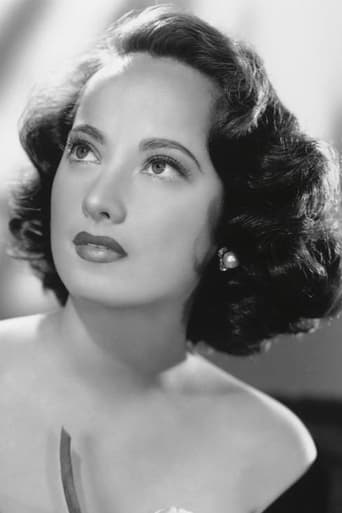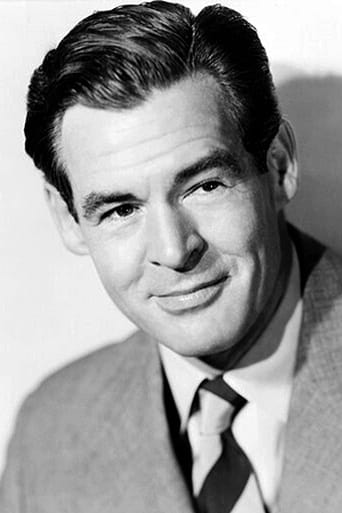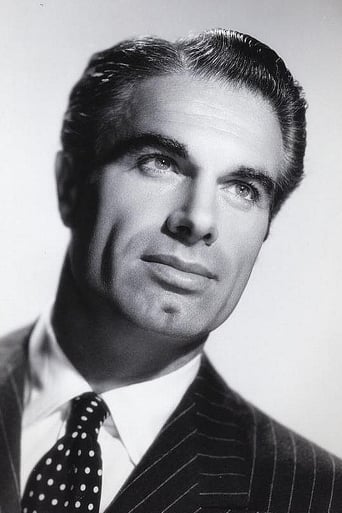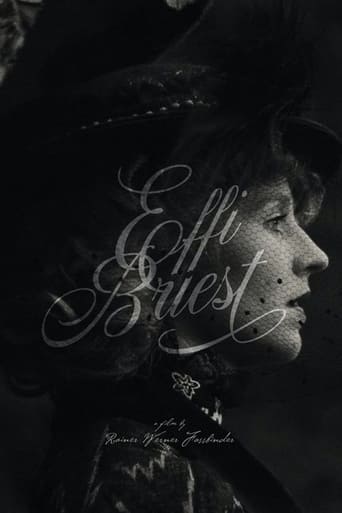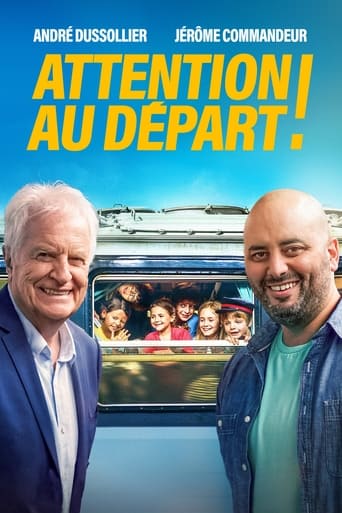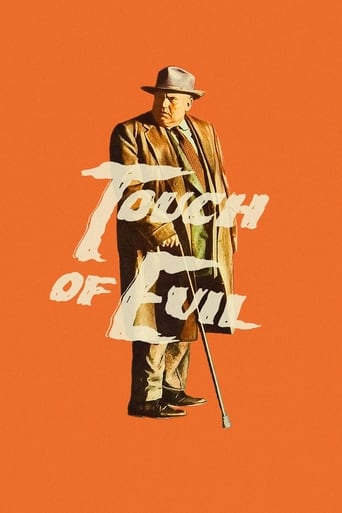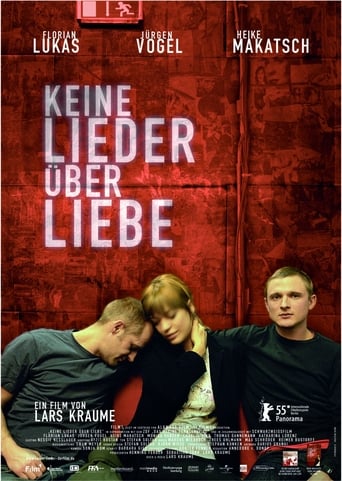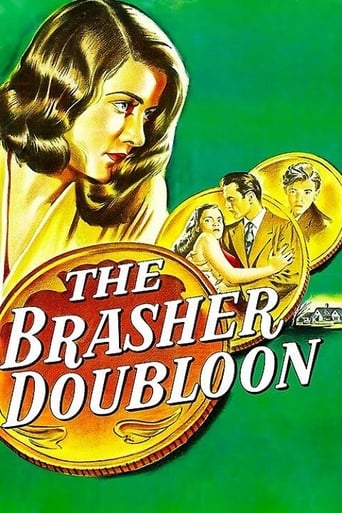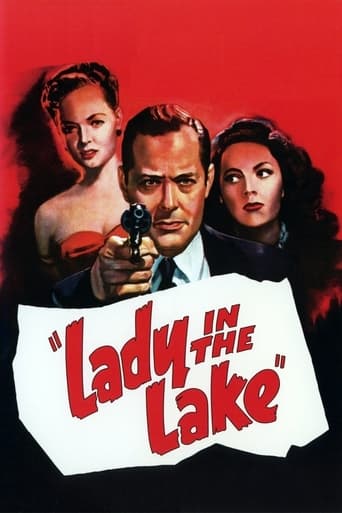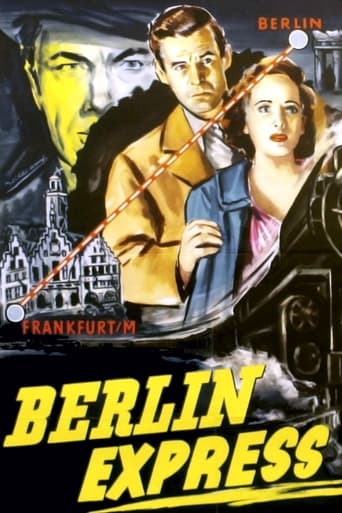
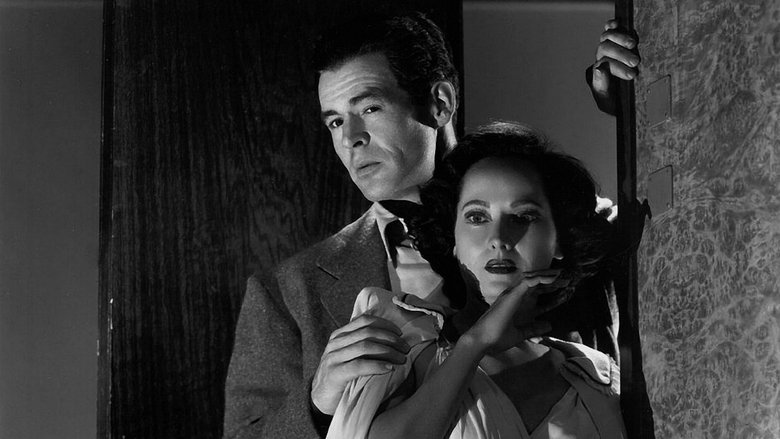
Berlin Express (1948)
Robert Ryan leads a group of Allied agents fighting an underground Nazi group in post-war Europe.
Watch Trailer
Cast
Similar titles

Reviews
Very well executed
Don't listen to the negative reviews
Good films always raise compelling questions, whether the format is fiction or documentary fact.
It's the kind of movie you'll want to see a second time with someone who hasn't seen it yet, to remember what it was like to watch it for the first time.
The opening script for "Berlin Express" gives one an idea of what to expect in this movie. "Actual scenes in Frankfurt and Berlin were photographed by authorization of The United States Army of Occupation, The British Army of Occupation, The Soviet Army of Occupation." The film is based on a story by Curt Siodmak, a German writer, director and producer. He fled Germany after Hitler came to power. and wound up in Hollywood in 1937. Most of the action takes place aboard the The Main Seiner, an American Army express train that ran from Paris to Berlin, with a stop at Frankfurt. The film narrator says that the Berlin Express "is a sort of traveling Grand Hotel for soldiers on leave and on orders, for War Department clerks and wartime wives, displaced persons, diplomats." Other people also seem to be able to travel on the express, judging by those in this film.Otto Franzen (Paul Lukas) was a German industrialist, now a dealer in scrap metal. Henri Perrot (Charles Korvin) had been a member of the French underground and is now in commerce. James Sterling (Robert Coote) is a British war veteran and Allied teacher for re-education in German schools. Lt. Maxim Koroshilov (Roman Toporow) is a Russian soldier on orders. Lucienne Mierbeau (Merle Oberon) is a multi- linguist and secretary. Hans Schmidt (Peter von Zerneck) is a German civilian who speaks English and whose occupation is drowned out by the train whistle. Robert Lindley (Robert Ryan) is an American agriculturalist working to rebuild Germany's food and nutrition programs. A mystery traveler is soon understood to be Heinrich Bernhardt (Fritz Kortner), but we know he is a decoy. He was Otto Franzen and Paul Lukas was the real Bernhardt.These are the people who make up the main cast of the film. Others take part later in Berlin. All of the cast are superb. The cinematography is outstanding. The technical work and production qualities are excellent.This is the first Hollywood movie made in war-torn Germany after the May 1945 end of World War II in Europe. It shows the almost total destruction of the cities of Frankfurt and Berlin. So, this film has considerable historical value. As bleak and terrible as the destruction appears – three years after the war, the film doesn't show the human toll. One can get a sense of it from the stark landscapes and scenes devoid of all but a few people. Then, the contrast with the scene of the busy open-air market amidst the rubble. That's a place, the narrator says, where one can sell and buy anything "from diapers to diamonds.""Berlin Express" was made as a mystery-thriller, but there's a great deal more to it than that. It is foremost a bleak picture of the widespread destruction of Germany. People of the 21st century may view this as a horror of war, and rightfully so. Those who watched the film when it came out would have been more aware of the insanity of it. Not because of any hateful or spiteful vengeance on the part of the Allies for needless bombing. But, because of the refusal of Germany to surrender with a lunatic at its helm. So, this film stands not just as an example of the horrors of war, but of the insanity of the war perpetrator who then refuses to surrender in the face of defeat and instead invites his own destruction. This film also has a clear propaganda theme. It's hope is that the Allies will be able to work together and help eventually to rebuild the devastated Germany. It does this with some light humor and jousting between the men on the train from different countries. And, the film touches one more topic – post-war Nazism. It has an existing Nazi underground that reminds viewers that Nazism itself is not dead. Indeed, the neo-Nazi beast was to rear its head soon in countries around the globe. Three things about the film are puzzling. The first is the shooting of a pigeon in the opening scene. Who would be shooting pigeons with so many people around the Eiffel Tower? And why didn't the shooter pick up the pigeon? I'll give a pass to the pigeon having the message for the suspense, but it wasn't necessary to the plot. The second strange thing was on the train. One of the men who escorts the decoy Dr. Bernhardt asks Schmidt for a light as he leaves the train. He passes a message to him. It's the same message found on the pigeon: 21:45, D, 9850, Sulzbach. Schmidt was the undercover bodyguard for Dr. Bernhardt, as we learn later. Was that just an Allied relay to him about the message? The only way it makes sense is that Schmidt then got the American military guys to switch the decoy's compartment. Then, the only person who would know where to kill Dr. Bernhardt (the fake one), would be someone on the train who saw the changes. We all find out later who that was.The third strange thing seems to be a hole in the plot. After the train stops at Sulzbach, Lindley and others find that some compartments have been changed. His first compartment, A, is now occupied by Lucienne who had been in B. Lindley doubles up with Perrot in E. They find D unoccupied – where the decoy Bernhardt had been, and the Army captain said it was to stay that way. So, Bernhardt must now be in B. But as the train resumes travel and the decoy Bernhardt comes down the corridor, he enters the now vacated compartment D and closes the door. The explosion goes off and kills him. Why didn't he go into his new compartment B? It seems like a plot hole and scripting or directing error.
Despite finding Valley of Hell and Carnival of Sinners to be extraordinary films by his dad Maurice,I for some reason have never got round to seeing a title from Jacques Tourneur.Taking a look at the TV listings,I was pleased to find that the BBC were doing a Jacques Tourneur double bill,which led to me getting on the express.The plot:Going on the Express train to Berlin,the passengers find themselves having to mix with other reps of nations occupying Germany. Mistrusting him due to him never coming out of his carriage,the group are surprised to find out that potential peace maker Dr. Bernhardt.Despite their side having recently lost,a secret Nazi blows up Bernhardt's carriage. Pushing for answers, Robert Lindley,finds out that the man was an impostor,and that Bernhardt and his secretary Lucienne were pretending to be fellow passengers. Believing that he has escaped the Nazi assassins, Bernhardt crosses paths with old friend Walther,who reveals to Bernhardt that he has not gotten off the tracks.View on the film:For the opening 30 minutes,director Jacques Tourneur & cinematographer Lucien Ballard (aka:the-then Mr Merle Oberon ) intercut their moody Noir espionage with startling footage of Berlin's "Russia zone." Given the unique chance of being the first Hollywood production shot in post-war Germany and the first movie to be allowed to film in Russia's "zone" Tourneur sadly lets the chance slip out of frame.Going for a tell and show approach, Tourneur clips the Film Noir anxiety by layering Paul Stewart's narration on thick,which does not add a psychological depth to what is being shown,but just describes the images!Stopping the narration once everyone is gathered, Tourneur walks in the shadows of war-torn Berlin and Frankfurt ,casting the shadows from the destroyed buildings down on the group attempting to rid the final Nazi gasps. Dancing in the underworld of the cities in seedy nightclubs, Tourneur explores every corner with sharp tracking shoots that follow Walther sinking into the post-WWII darkness. Calling out a sincere message of unity and understanding between the occupying nations,the screenplay by Harold Medford and Curt Siodmak avoid the message becoming sickly sweet, by placing it in a gang on a mission Film Noir. Brilliantly expressing the abrasive relationship between the occupying nations allegorically on the train, the writers whip up a Film Noir storm,as Dr. Bernhardt starts to regret giving lifelong friend Walther his trust.Although carrying a poor French accent, Merle Oberon gives a sparkling performance as Lucienne,who is given an enticing flirting side by Oberon,which mask her quick-witted Femme Fatale skills.Joined by a superb support cast that include Charles McGraw and a worn-down Reinhold Schünzel as Walther, Robert Ryan gives a great, chiselled performance as Lindley. Initially being firm- handed with his opinions,Ryan wonderfully brings an ease to Lindley,as he realises that he has to work with others to keep the Berlin Express on track.
I was looking forward to this movie. It seemed promising and I had hoped for a "The Lady Vanishes" type of mystery thriller. Jacques Tourneur directed the film - the man behind "Cat People", "I Walked with a Zombie" and "Out of the Past" - all excellent films that I love."Berlin Express" was sadly disappointing to see. The film is for the most of the time not set on a train and was not very exciting at all. Only the sequence in the brewery was ingeniously filmed. The rest of the film was all talk!!!The cast was not the most memorable and Merle Oberon seemed miscast. But the real star of the film is the photography of the ruins of Frankfurt and Berlin which is fascinating to see. See the film for that alone because the film is short on suspense. The plot was tedious relying very much on coincidence and I never cared for the characters.
"Berlin Express" (1948) is directed by Jacques Tourneur, who not only made the classic horror films "Cat People" (1942) and "I Walk with a Zombie" (1943), amongst others, under Val Lewton, he made the absolutely unbeatable film noir "Out of the Past" (1947). This semi-noir, his next after "Out of the Past", is nowhere as near as good, although it has its points of interest. It stars Robert Ryan, always good value, along with Merle Oberon and Paul Lukas.The screenplay was written by Curt Siodmak (an intriguing, if patchy, director in his own right) and Harold Medford and concerns a multinational group of train passengers (American, French, English and Russian) who become involved in a post-World War II Nazi assassination plot of a prominent peace activist.The photography by Lucien Ballard is very good and its trump card: the movie was shot on location in Berlin and Frankfurt-am-Main, so this is real post-war devastation you're seeing. In this, and a few other aspects (like Robert Ryan's character) this resembles the far superior "The Third Man" (1949). The main problem here is the script: it relies way too much on voice over narration to propel the film along and all the characters are stereotypes unimaginatively worked out. The direction is very stylish however, which makes the plot deficiencies somewhat more forgivable, even if Tourneur appears to be rather bored with plot mechanics. The acting isn't bad, but there isn't any great demands made on the cast and the standard is no better or worse than any other average Hollywood product of that period.So, no masterpiece, and in many respects, desperately so-so, but noir buffs, you won't need much prompting to take the plunge and watch it.
